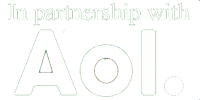Frequently Asked Questions About the DMOZ Abuse Report System
Introduction
The Open Directory Project is the largest, human-edited directory of the Web. This remarkable feat has been achieved by volunteer editors who are committed to our guiding principles.
Unfortunately, a small number of editors/webmasters are more committed to their self-interest than the Directory. The actions of the few threaten the directory's quality and integrity, adversely affecting the user experience.
DMOZ is committed to providing the best quality directory possible, so if you think you've encountered abusive editing we would be very grateful if you'd let us know. All reports are investigated expeditiously and in complete confidence. If abuse is found we will rectify it.
What We Consider Abuse
- Editors giving preferential treatment to their sites. This includes self-cooling (awarding of the 'cool' designation to affiliated sites) and keyword-stuffing (proving longer and/or more favourable titles and descriptions to affiliated sites).
- Editors adding inappropriate sites. This can be done accidentally, of course, but of special concern is the adding of pornographic sites outside of Adult/, affiliate links, mirrors, and doorways.
- Sites listed in the Kids & Teens branch which present Adult content material.
- Biased/slanted categories. DMOZ aims to represent all viewpoints and topics equally and fairly; categories designed to unfairly exclude/marginalise a particular outlook/interpretation are disallowed.
- Editors accepting bribes. We have no tolerance whatsoever for any bribery attempts. All submissions to the Directory are completely free; any editor found to be accepting bribes will be removed.
- Sites which significantly change their content so that they are no longer relevant to the category/description they have been provided with. Hijacked domains are an example of this.
Basically, any tactic that adversely affects DMOZ for you, the user, should be reported.
What We Don't Consider Abuse
DMOZ is not a search engine. As such, we do not always take the same view of "spam" as search engines. For instance, we don't care about "hidden"/repeated text as it has no bearing on our users.
As we do not guarantee the inclusion of any site, that your site has not yet been included is not in itself reason for filing a report.
What Makes a Good Report?
To help us investigate your report please include as much relevant information as you can. This may include:
- Affected categories/editors/sites.
- A description of the alleged abuse.
- Proof of editors' affiliations with specific sites.
- Copies of e-mails (including full-headers where possible).
- Details of any past correspondence you have had with DMOZ.
- Your e-mail address. This allows investigating meta editors to contact you if they need more information.
Who Investigates the Reports?
Community managers (meta editors) and DMOZ Admins.
How do I Check the Status of a Report I've Made?
Scroll down to the bottom of the Public Abuse Report System main page, enter the report ID in the text box, and submit the form.
Note: Even if you provide an e-mail address you will not be sent any information: on the report's status or otherwise.
